Are you facing challenges with contract enforcement and unsure where to turn? Navigating the complexities of legal agreements can be daunting, but understanding your rights is crucial. In this article, we'll explore effective strategies and essential tips for drafting a robust contract enforcement request. Join us as we delve deeper into this important topic that's relevant for anyone looking to protect their interests!
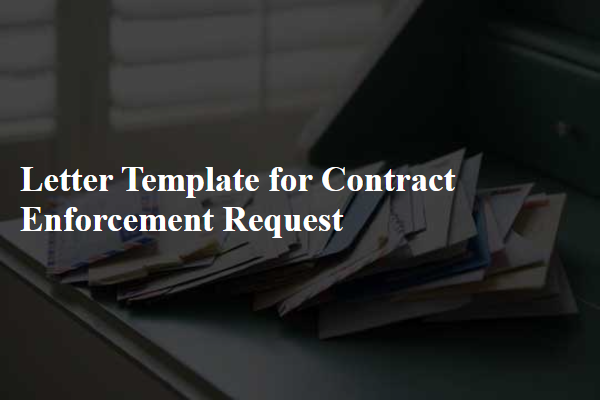
Clarity of Subject and Purpose
A legal demand for contract enforcement often centers around the specific terms and responsibilities set forth in the agreement. The subject should explicitly state the nature of the contract, such as a rental agreement for commercial property, referencing pertinent details like lease duration, property address (e.g., 123 Main Street, Springfield), and the parties involved (e.g., John Smith, landlord, and ABC Corp, tenant). The purpose must outline the reason for requesting enforcement, such as non-payment of rent, which may quantify the overdue amount (e.g., $5,000 since August 2023) and specify the timeframe for resolution, often requesting a response within 14 days to avoid legal action. Clear articulation ensures both parties understand obligations and consequences, promoting resolution without further conflict.
Reference to Contractual Terms
A request for contract enforcement references the specific terms outlined in the legal agreement. Contractual obligations often specify deliverables, timelines, and responsibilities of both parties involved, such as Company X and Company Y, dated January 1, 2023. These obligations may include the payment schedule (e.g., installment payments of $5,000 due every month), quality standards for goods or services (e.g., ISO 9001 certified production), and dispute resolution mechanisms (e.g., mediation in New York City). Failure to comply with these terms can lead to legal disputes, potentially handled under the jurisdiction specified in the contract, such as the circuit court in San Francisco County. Enforcement requests may seek remedies such as specific performance or monetary damages, emphasizing the necessity of adherence to the agreed-upon conditions to mitigate further issues.
Specificity of Breach or Issue
Contract enforcement requests require clarity regarding the specific breach or issue at hand. Clearly describe the nature of the breach, referencing relevant contract provisions (e.g., Section 4.2 - Payment Terms). Detail the parties involved (e.g., Company ABC and Client XYZ), including significant dates (e.g., breach occurred on March 15, 2023), and the impact of the breach on the overall agreement. Emphasize how this issue disrupts the contractual obligations. Outline any previous communications regarding the breach to establish a timeline, and indicate desired outcomes (e.g., compensation of $10,000 or specific performance). Providing this specificity strengthens the argument for enforcement and illustrates the urgency of addressing the breach.
Legal and Financial Implications
The enforcement of a contract often necessitates a thorough understanding of legal and financial implications, particularly in civil law jurisdictions. Breaches in agreements, such as the violation of terms for a service contract worth $100,000, can lead to financial liabilities including compensatory damages potentially amounting to as much as 30% of the contract value. Legal repercussions may involve court proceedings in specified jurisdictions like New York, which has a reputation for stringent enforcement of contract law, including potential injunctions to prevent further breaches. Additionally, prevailing parties in litigation may also seek recovery of attorney fees, which can escalate costs significantly. Furthermore, parties must consider opportunities for mediation or arbitration, which may provide more cost-effective resolutions while avoiding the public scrutiny associated with court cases. Timeliness in addressing breaches is also critical, as delays could affect a party's ability to enforce rights, particularly under the statute of limitations that varies by state, often ranging from three to six years.
Desired Action and Timeline
In contract enforcement scenarios, it is critical to specify desired actions. Examples include remedy demands such as compensation for breaches or adherence to obligations outlined in legal agreements. Timelines often accompany these requests, ensuring that specific deadlines prompt necessary resolutions. For instance, a contractor may demand that a supplier deliver materials by November 15, 2023, following a missed delivery date of October 30, 2023, which resulted in project delays. Additionally, legal nuances, depending on the jurisdiction, may dictate certain timelines for compliance. Ensuring clarity in these requests is vital for favorable outcomes in contract enforcement processes.

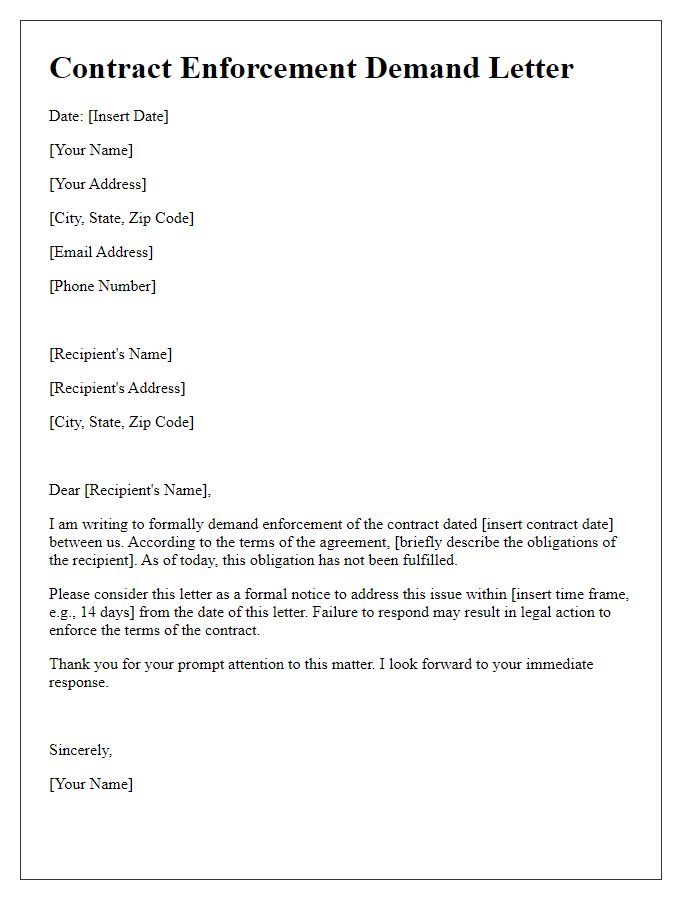
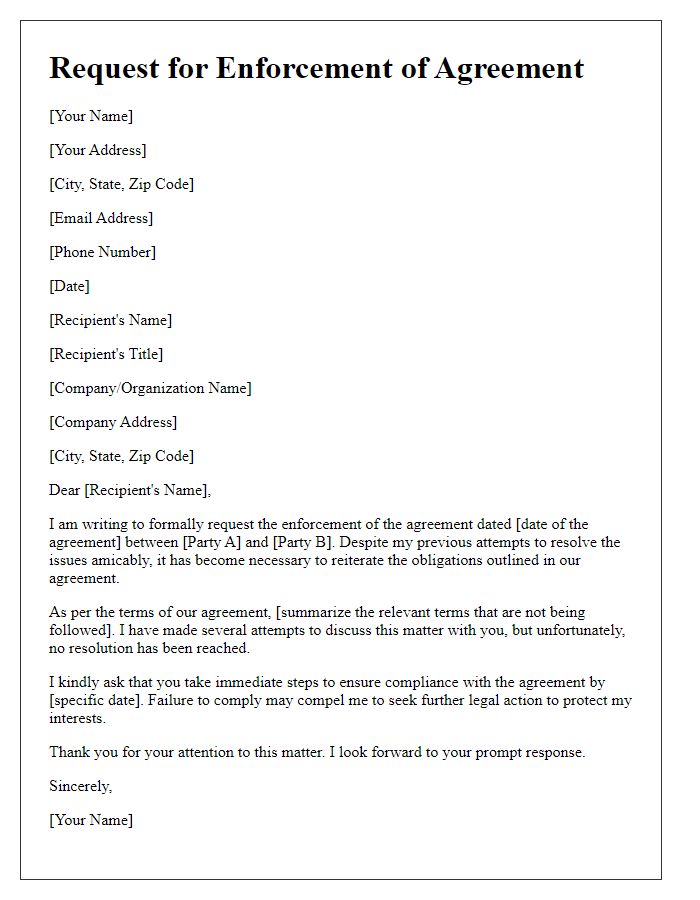
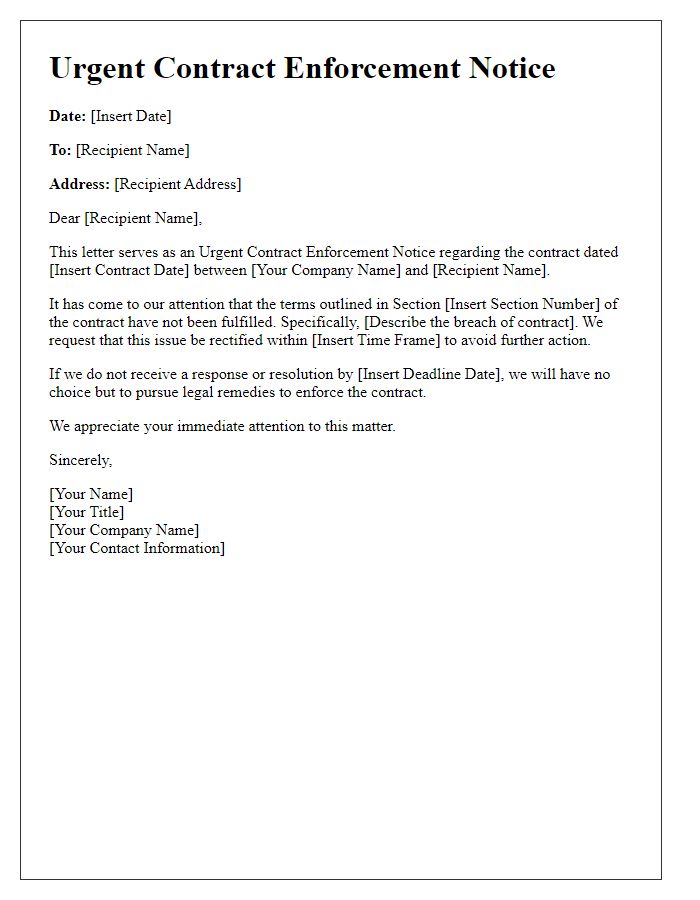
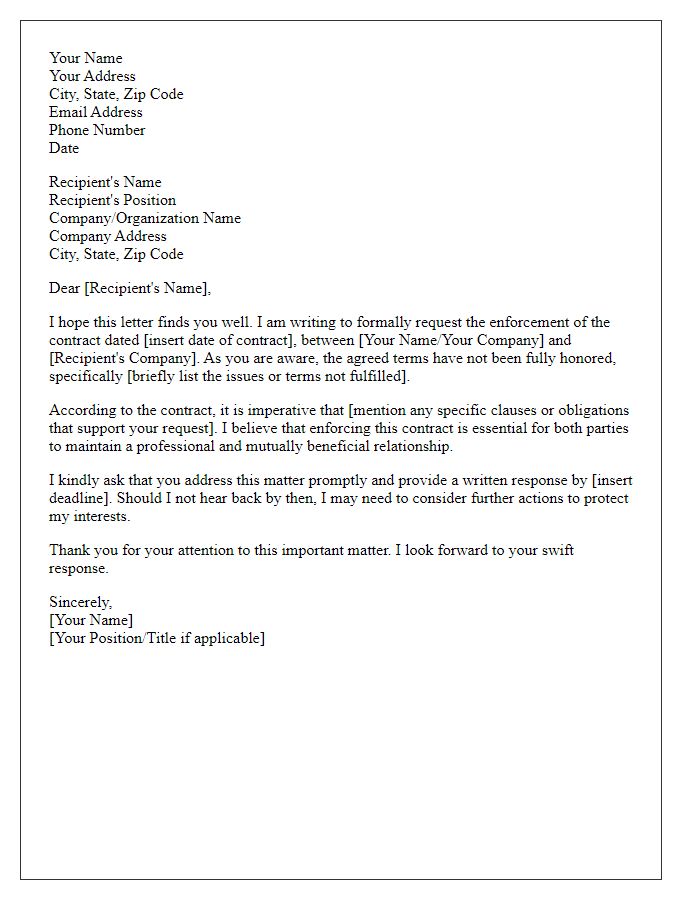
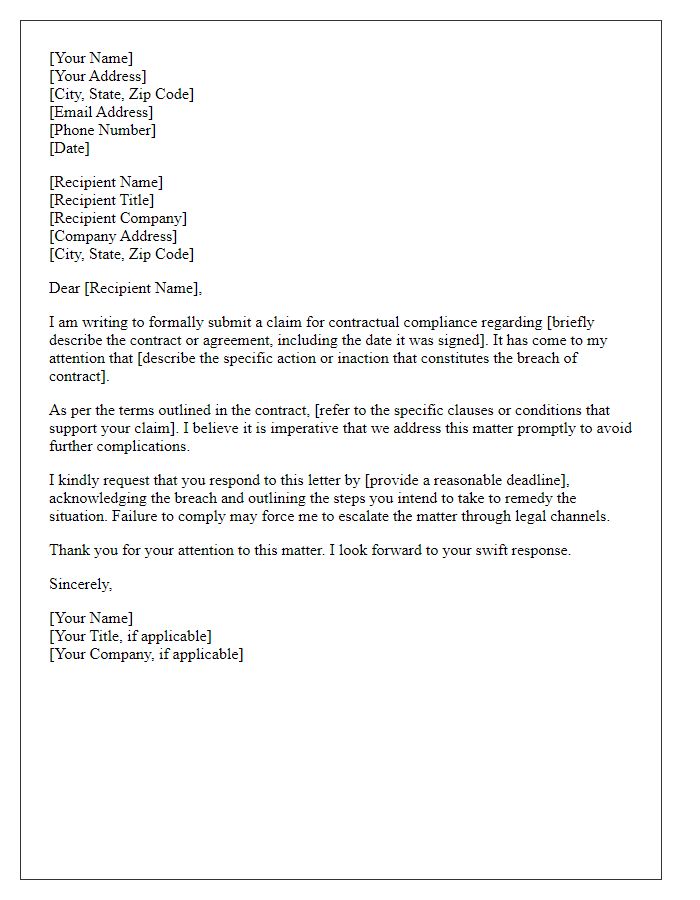
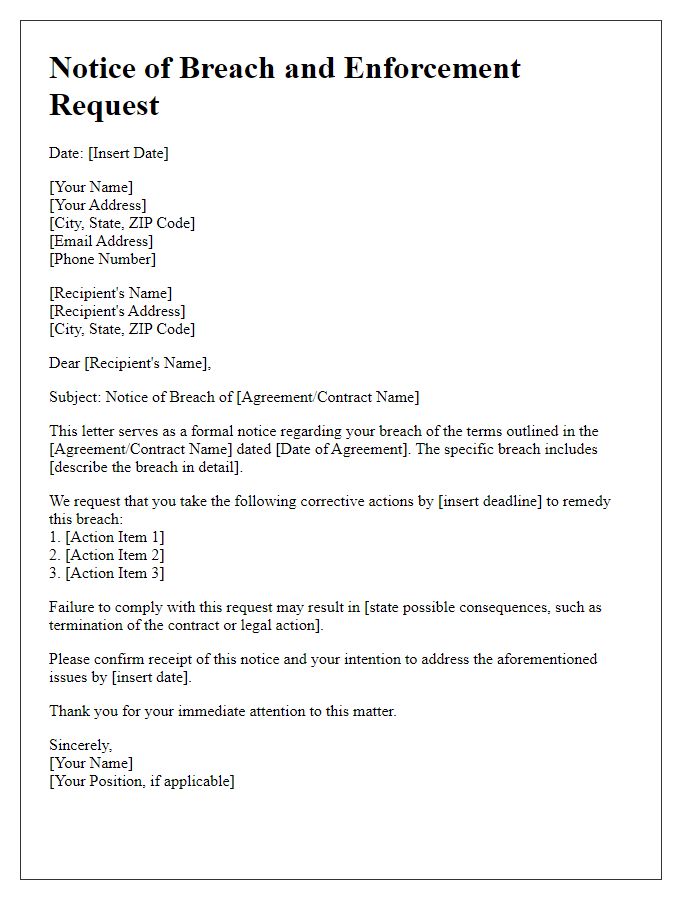
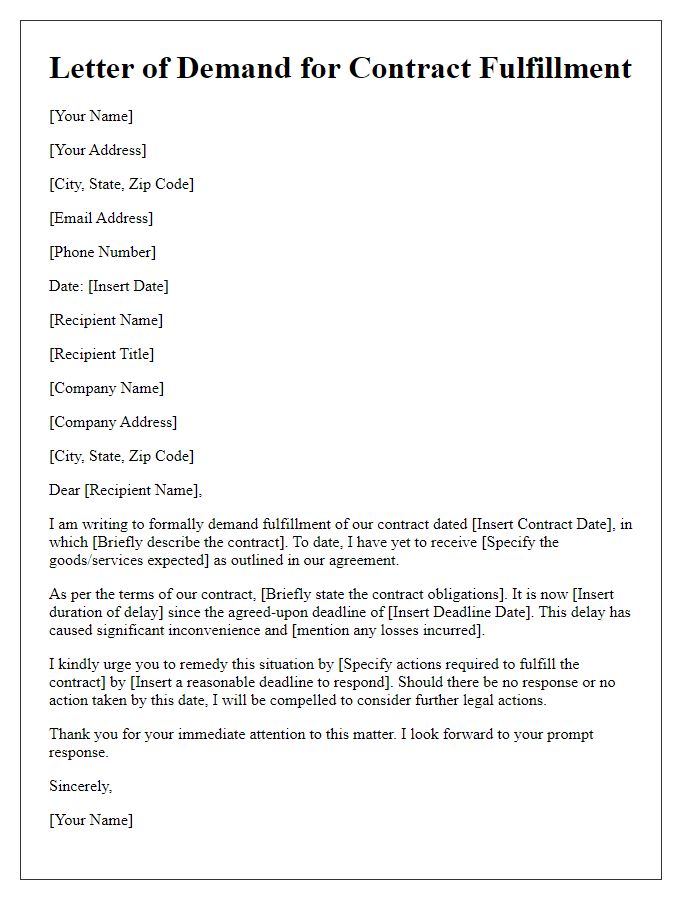
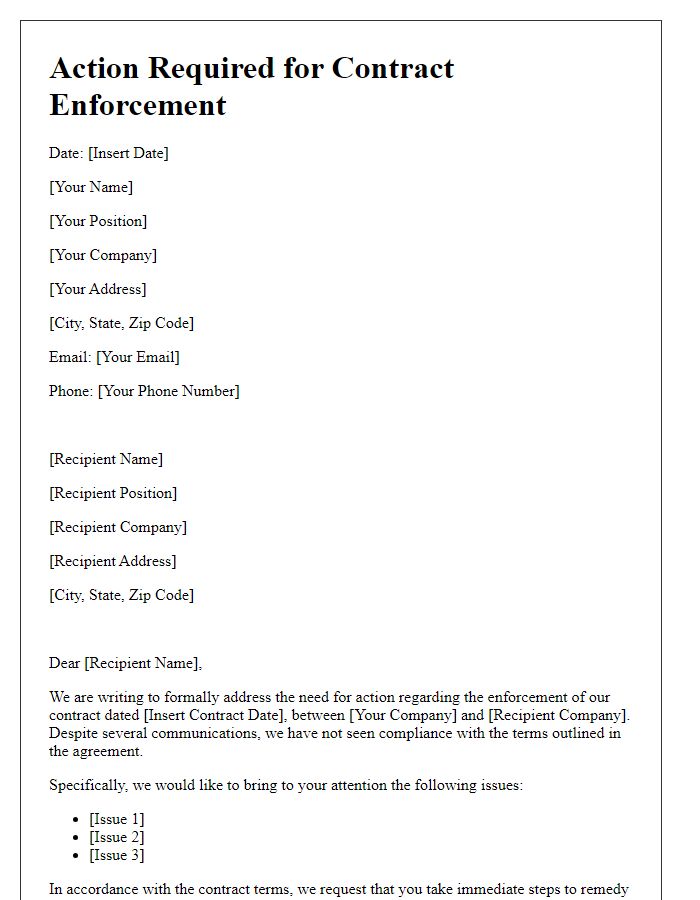
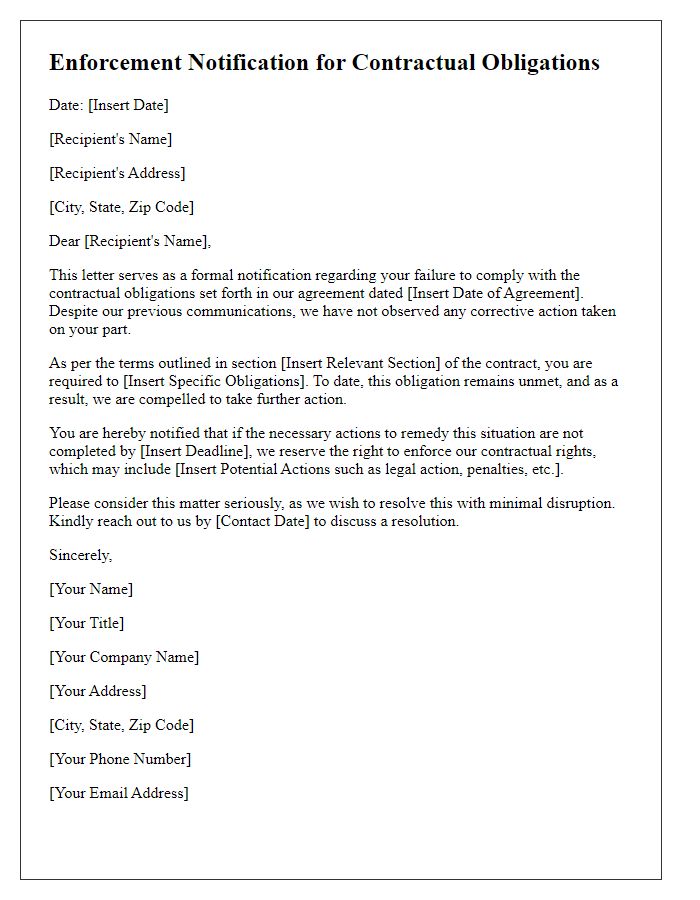
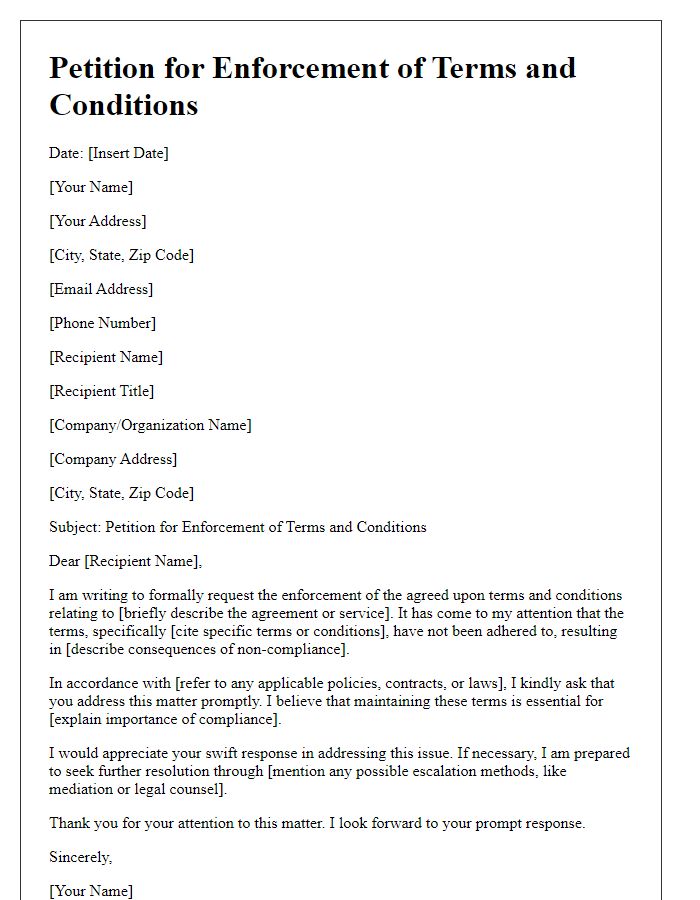


Comments